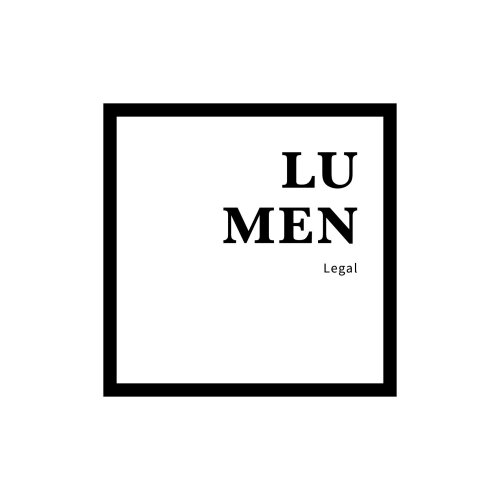Best Telecommunications and Broadcast Lawyers in Colombia
Share your needs with us, get contacted by law firms.
Free. Takes 2 min.
Or refine your search by selecting a city:
List of the best lawyers in Colombia
About Telecommunications and Broadcast Law in Colombia:
Telecommunications and Broadcast in Colombia are overseen by various laws and regulatory bodies to ensure fair competition, consumer protection, and national security. The laws governing this sector cover a wide range of issues including licensing, spectrum management, content regulation, and data privacy.
Why You May Need a Lawyer:
You may need a lawyer in the field of Telecommunications and Broadcast in Colombia if you are facing legal disputes related to licensing, regulatory compliance, contract negotiations, or infringement issues. A lawyer can help you navigate the complex legal landscape and protect your interests in this highly regulated industry.
Local Laws Overview:
In Colombia, the telecommunications and broadcast industry is governed by the Ministry of Information Technologies and Communications (MinTIC) and the Communications Regulation Commission (CRC). Key laws that are particularly relevant include the General Telecommunications Law, the Audiovisual Media Law, and the Competition Law. These laws aim to promote competition, protect consumers, and ensure the efficient use of resources in the sector.
Frequently Asked Questions:
1. What licenses do I need to operate a telecommunications or broadcast service in Colombia?
In Colombia, you will need to obtain licenses from MinTIC and comply with specific regulations depending on the type of service you intend to provide. These licenses typically cover spectrum usage, content distribution, and data protection.
2. Can foreign companies operate in the Colombian telecommunications and broadcast market?
Yes, foreign companies can operate in Colombia's telecommunications and broadcast market. However, they must comply with local regulations and may need to form partnerships with local entities to obtain licenses.
3. How are telecommunications and broadcast services regulated in Colombia?
Telecommunications and broadcast services in Colombia are regulated by MinTIC and CRC. These regulatory bodies oversee licensing, spectrum management, content regulation, and competition issues in the sector.
4. What are the key challenges facing the telecommunications and broadcast industry in Colombia?
Some key challenges facing the industry in Colombia include spectrum scarcity, infrastructure development, competition issues, and regulatory compliance. These challenges can impact service quality, consumer choice, and industry growth.
5. What are the penalties for non-compliance with telecommunications and broadcast regulations in Colombia?
Non-compliance with regulations in the telecommunications and broadcast sector can result in fines, license revocation, and legal action. It is important to stay informed about regulatory requirements and seek legal advice to avoid potential penalties.
6. How can I protect my intellectual property in the telecommunications and broadcast sector in Colombia?
You can protect your intellectual property in Colombia by registering your trademarks, copyrights, and patents with the Colombian Intellectual Property Office (SIC). It is advisable to seek legal advice to ensure comprehensive protection of your intellectual property rights.
7. Are there any restrictions on foreign investment in the telecommunications and broadcast sector in Colombia?
Yes, there are restrictions on foreign investment in certain segments of the telecommunications and broadcast sector to protect national security interests and ensure fair competition. Foreign investors must comply with specific regulations and licensing requirements.
8. How do data privacy laws impact telecommunications and broadcast services in Colombia?
Data privacy laws in Colombia require telecommunications and broadcast companies to protect the personal data of their customers and comply with data security standards. Violations of data privacy laws can result in significant penalties and reputational damage.
9. What are the current trends shaping the telecommunications and broadcast industry in Colombia?
Some current trends shaping the industry in Colombia include the expansion of 5G networks, the rise of Over-The-Top (OTT) services, the convergence of telecom and media technologies, and the digitalization of content distribution. These trends present both opportunities and challenges for industry players.
10. How can I stay informed about developments in the telecommunications and broadcast sector in Colombia?
You can stay informed about industry developments by following news updates from MinTIC, CRC, industry associations, and legal publications specializing in telecommunications and broadcast law. Networking with industry professionals and attending conferences can also help you stay abreast of the latest trends and regulations.
Additional Resources:
For more information on Telecommunications and Broadcast in Colombia, you can visit the MinTIC website (https://www.mintic.gov.co/) or contact the Communications Regulation Commission (CRC) for regulatory guidance.
Next Steps:
If you require legal assistance in the field of Telecommunications and Broadcast in Colombia, it is advisable to consult with a specialized lawyer who has experience in this sector. They can provide tailored advice on regulatory compliance, licensing requirements, intellectual property protection, and dispute resolution. Be sure to gather relevant documentation and prepare a list of questions to discuss with your lawyer during the initial consultation.
Lawzana helps you find the best lawyers and law firms in Colombia through a curated and pre-screened list of qualified legal professionals. Our platform offers rankings and detailed profiles of attorneys and law firms, allowing you to compare based on practice areas, including Telecommunications and Broadcast, experience, and client feedback.
Each profile includes a description of the firm's areas of practice, client reviews, team members and partners, year of establishment, spoken languages, office locations, contact information, social media presence, and any published articles or resources. Most firms on our platform speak English and are experienced in both local and international legal matters.
Get a quote from top-rated law firms in Colombia — quickly, securely, and without unnecessary hassle.
Disclaimer:
The information provided on this page is for general informational purposes only and does not constitute legal advice. While we strive to ensure the accuracy and relevance of the content, legal information may change over time, and interpretations of the law can vary. You should always consult with a qualified legal professional for advice specific to your situation.
We disclaim all liability for actions taken or not taken based on the content of this page. If you believe any information is incorrect or outdated, please contact us, and we will review and update it where appropriate.
Browse telecommunications and broadcast law firms by city in Colombia
Refine your search by selecting a city.











